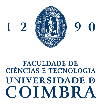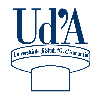Apply to EMJM-GeoPlaNet programme
Important note about the programme funding
Thus some candidates, no matter how good is their profile, may not have the possibility to get an Erasmus scholarship for this programme.
Check the table of remaining scholarships.
However, it is possible to participate in the Master Course as a Non-Scholarship Holder (NSH) Student. For this purpose we encourage all applicants to search for private fundings (own resources), local/national scholarships, fundings by a company (which will cover the costs of the programme and/or expenses related to the stay) and indicate at the time of application their funding opportunities.
NSH candidates will go through the same application procedure. There might be an extra-call for application for late NHS students if the number of NSH students is not reached after the first call.
The application period will run from December 1st, 2025 to February 28th, 2026, midnight CET
IS MY PROFILE ELIGIBLE?
- Applicants must hold a Bachelor’s degree in one of the fields of science: Earth science, physics, mathematics, astrophysics, geology, geospatial sciences and engineering.
- Degrees in environmental sciences, biology, chemistry, IT or computer sciences are not eligible.
- Applicants must demonstrate a good level of English (at least B2 level, see below "Application procedure")
Candidates should provide the following documents merged into a single PDF file in the following order:
1 - The EMJM application form: download here
2 - A certified copy of a valid Passport
In order to attest the nationality of the student. Applicants with multiple nationalities must provide the copy of the passport corresponding to the nationality they are applying with. Citizens from the EU (only) can use their ID as proof of nationality.
3 - A CV (if possible, using the Europass format)
4 - Copies of degrees and transcripts (certified translation in English, except for French, Italian, Portuguese Universities)
- The Hague Apostille or an official legalization for these documents is required for all diplomas that were issued in countries from outside of the European Higher Education Area. For degrees delivered in the European Higher Education Area, only a certified translation is required.
Diploma
Diploma supplement
Applicants are also encouraged to provide their diploma supplement, if they have one.
5 - English Language Certificate
- A secure English language test which is valid at time of registration is needed and the minimum level is B2 (between 5 and 6.5 IELTS, with a minimum of 5.0 in all four components) or equivalent (see table of equivalence and accepted tests), except for English native speakers (no language certificate required) or for applicants who have a higher education degree entirely taught in English (certificate issued by the university required).
- Some proficiency or interest in Portuguese, Italian and French language would also be beneficial, but not essential for candidates.
6 - Two reference letters
The two recommendation letters shall be issued by teachers/professors or job supervisors. They shall assess explicitely the student’s ability to follow the GeoPlaNet Master’s programme. The reference letter should include: date of issue, name, institution, position, signature, official stamp (if available) and contact details (phone number and email) of the person/institution recommending the student.
If you referee’s University regulations do not allow to send recommendation letters to the students, it is possible to send the letters directly to application-impg@univ-nantes.fr, mentionning your name in the object of the message. The deadline is the same for referees.
- Those documents should be merged into a single PDF file, respecting the order of the sections requested and sent to the following email address : application-impg@univ-nantes.fr . NB: Uncomplete files will be rejected. Please consider compressing the images to reduce the file size to MAXIMUM 3Mo. Too heavy files will be rejected.
Selection
- Academic Excellence and Suitability (academic records)
- Proficiency in English
- Motivation and Potential (motivation letter and interview)
- References
1 - A check on the eligibility of application
The Selection committee will check if the application file is complete and whether the candidate meets the eligibility requirements in terms of academic background. Non relevant applications will be rejected at this stage (Nov-February).
2 - A preselection phase based on the excellence of the application (February)
3 - A remote interview between the shortlisted candidates and the Selection Committee (March-April)
A main list is constituted as well as a reserve list. Applicants will be asked to confirm their commitment to the Master Programme shortly after selection.
Applicants who would not be selected for an Erasmus scholarship will have the opportunity to apply as Non-Scholarship Holder student if the number of NSH students is not reached after the first call.
Where an appeal does not achieve the result intended by the applicant, the decision must be reasoned.
The GeoPlaNet master's programme is based on 3 existing master's programmes in Portugal, Italy and France: the Master Degree in Astrophysics and Instrumentation for Space in Coimbra, the International Master Degree in Planetary Sciences and Space Exploration in Chieti-Pescara and the Master Degree in Earth and Planetary Sciences in Nantes. GeoPlaNet-EMJM shares one semester with each of these 3 programmes.
The admission in the GeoPlaNet-EMJM is very selective. In complement to your application, feel free to also apply to one of these programmes if they meet your professional interests. All three masters are international and taught in English and offer the possibity to spend a semester in another European university as part of the Erasmus+ programme. For these three programmes, you will not benefit from the Erasmus Mundus grant, but you can apply for financial support from the Erasmus Mobility programme or from the university where you will apply.
Application procedures and dates are different for each master. Some registration deadlines may be earlier than the GeoPlaNet deadline. You can apply to several programmes at the same time. Among the three masters, each has its own specificity. Please check the information on the following links carefully and contact the relevant coordinator if you are interested.
- Master’s degree in Astrophysics and Instrumentation for Space, University of Coimbra, Portugal
- International Master Degree (Laurea Magistrale) in Planetary Sciences and Space Exploration, University of Annunzio of Chieti-Pescara, Italy
- Master in Earth and Planetary Sciences, Nantes Université, France




